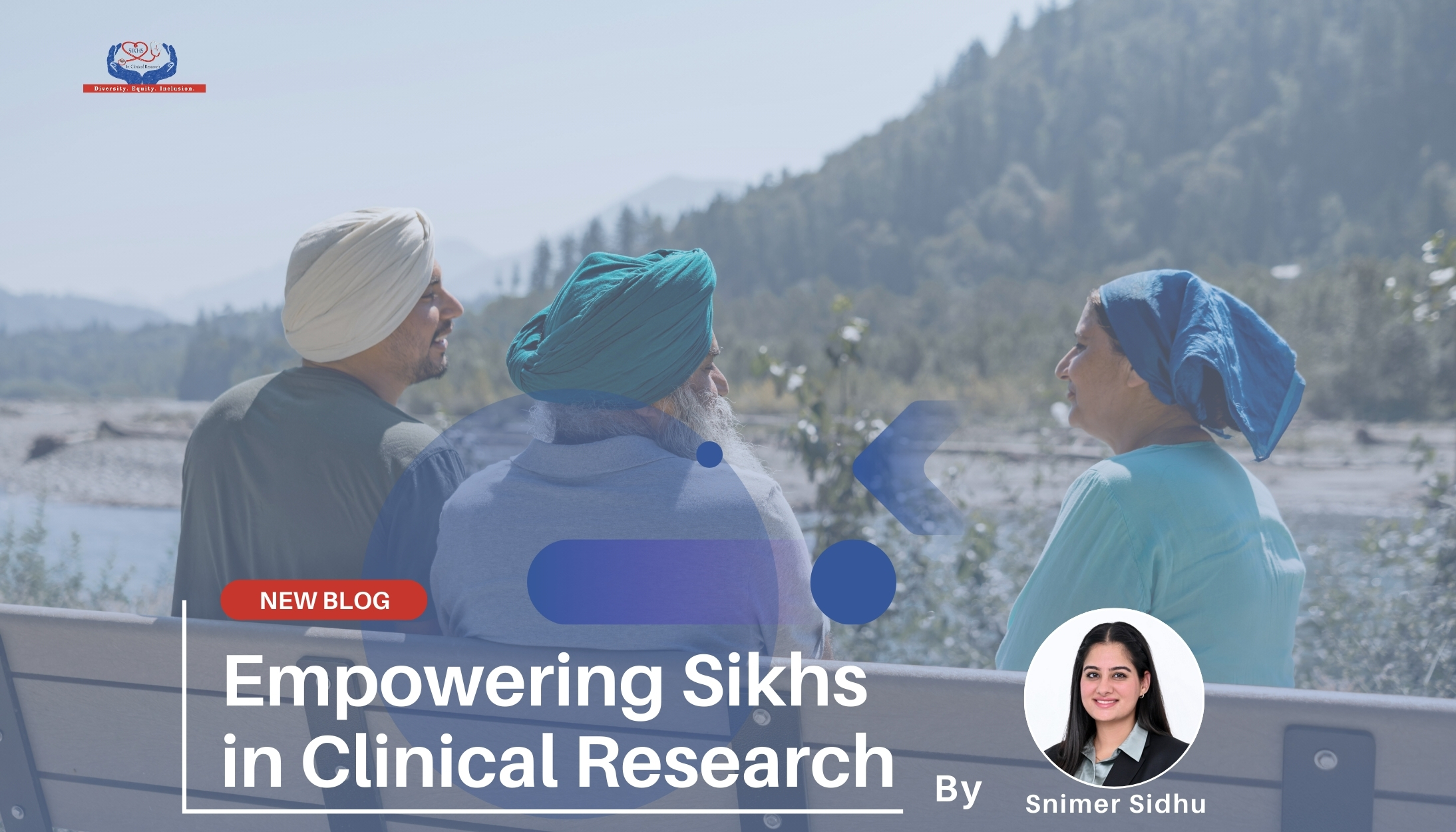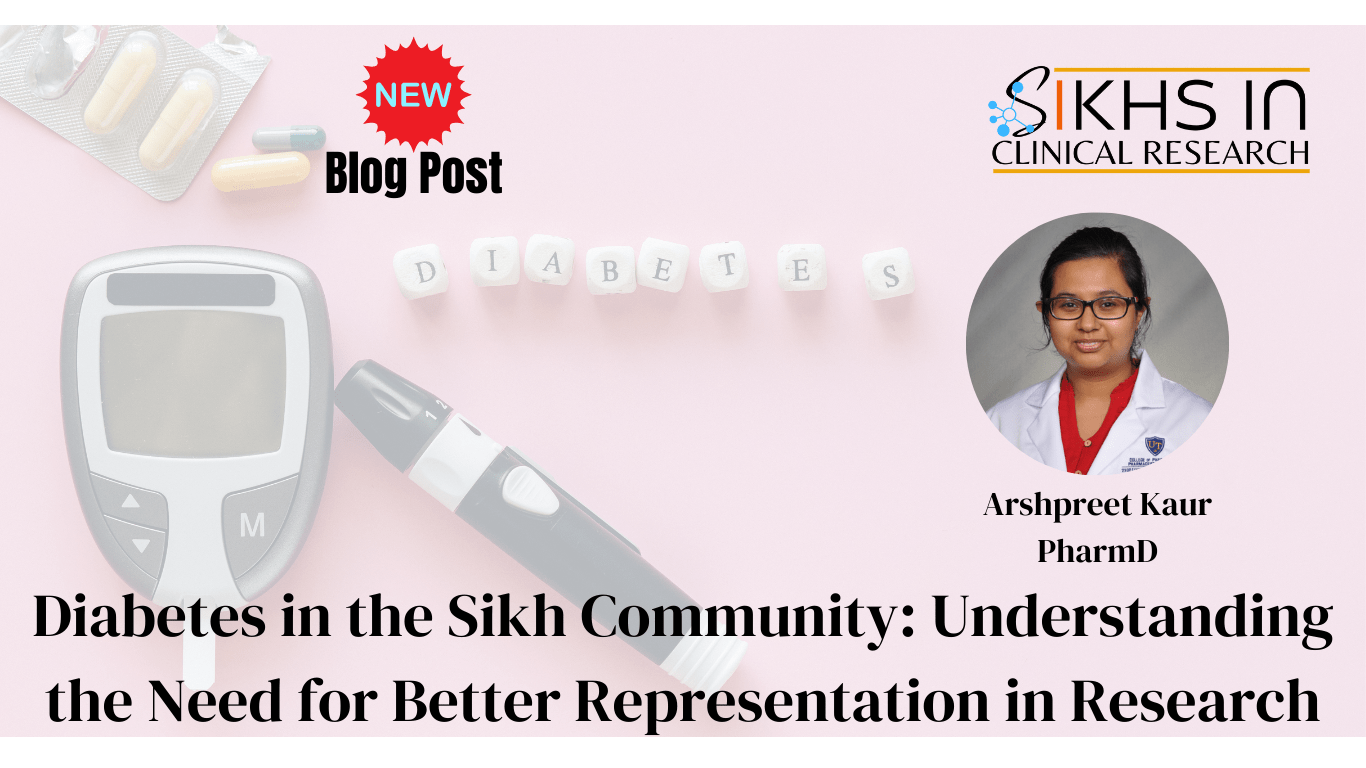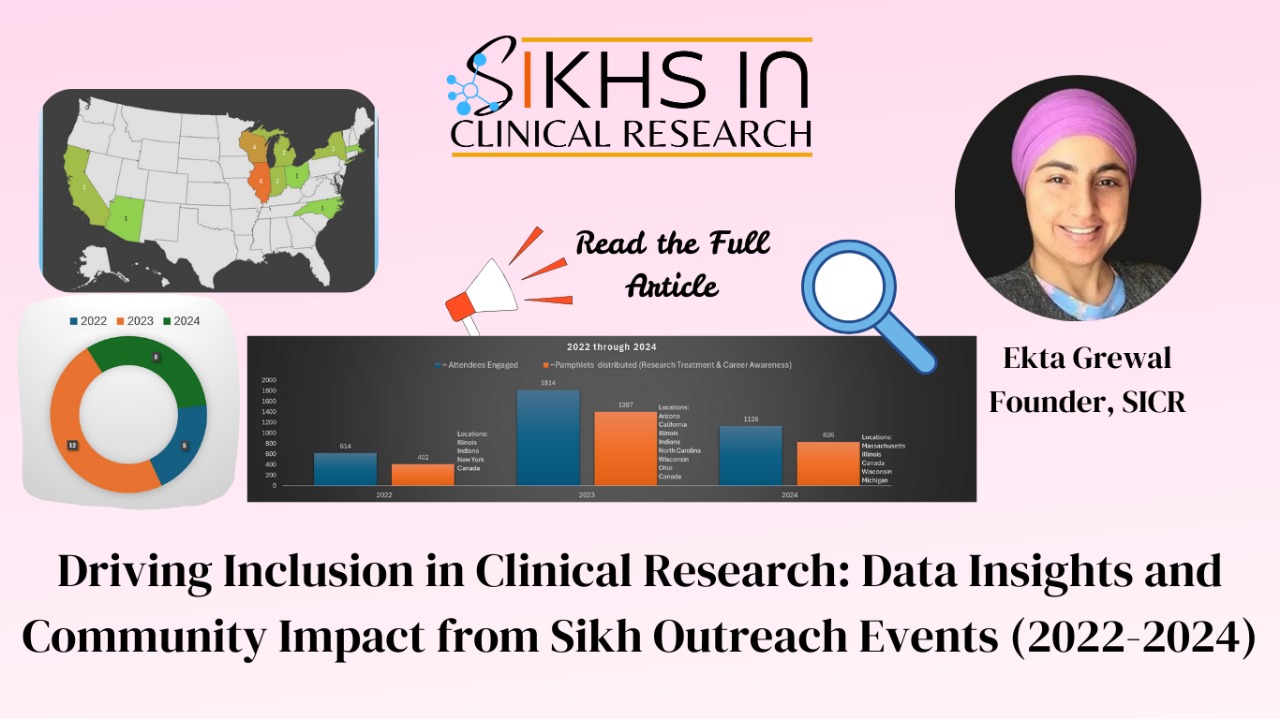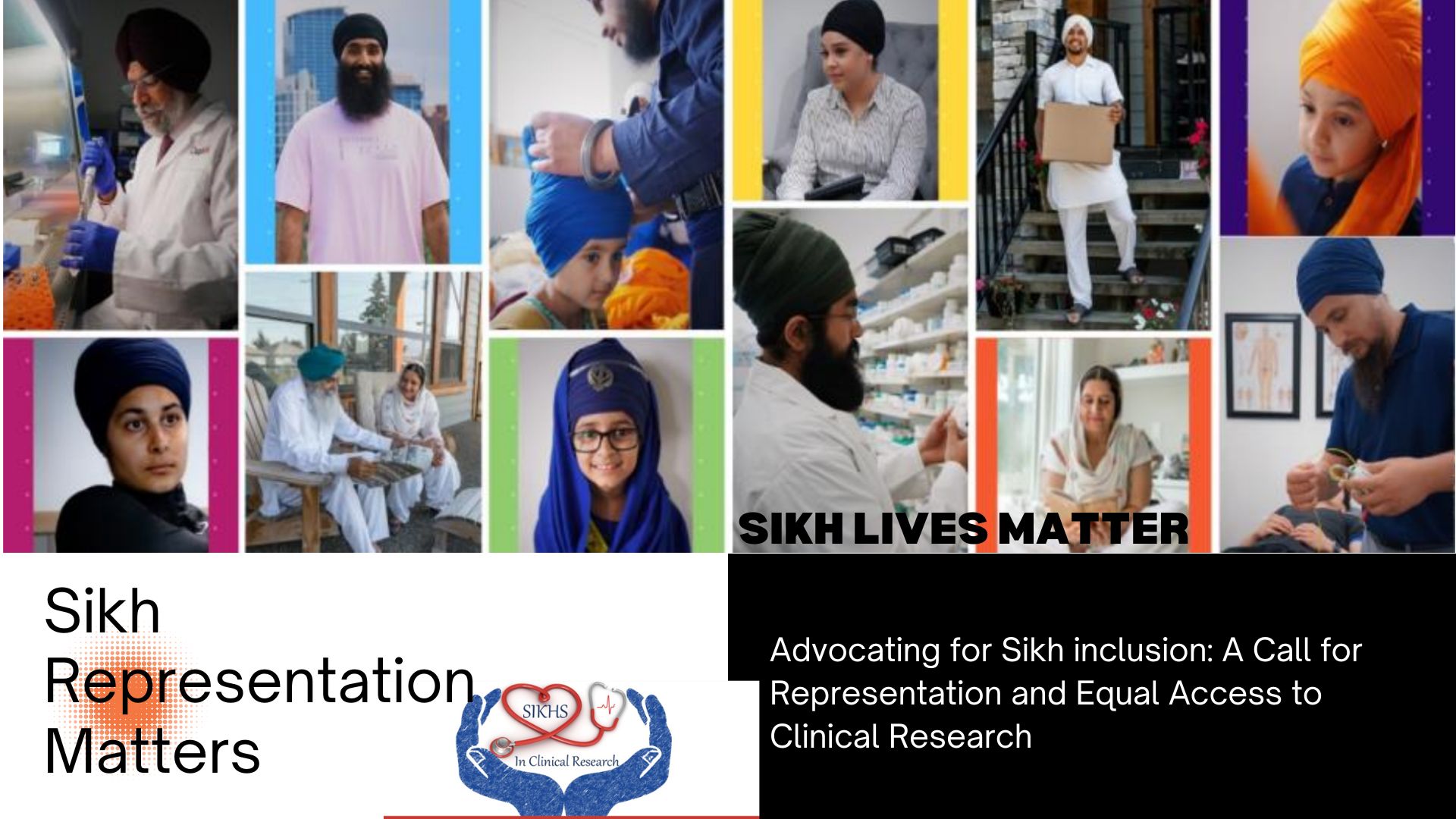Clinical research is a cornerstone of healthcare, advancing medical knowledge, developing therapeutic modalities, and enhancing patient care and outcomes. However, achieving diversity in both patient populations and the research workforce remains challenging due to a lack of awareness and cultural and language barriers. Historically, many subgroups, minorities, and faith-led communities have been underrepresented in clinical research. Sikhs, followers of the faith ‘Sikhism’, which promotes the tenet of ‘Sarbat da Bhala’ (Well-being for all), predominantly reside in Punjab, India. In the United States, the Sikh population is approximately 500,000-700,000 and is underrepresented in clinical research. Sikhs in Clinical Research (SICR) is a great initiative dedicated to raising awareness within the Sikh community about the importance of representation in clinical trials and the promising career opportunities in this vital field to promote diversity and health equity.
The Importance of Diversity in Clinical Research
Enhancing Safety and Efficacy: Diverse patient participation ensures that research findings apply to a broad population. Genetic backgrounds, lifestyles, and environmental factors influence how individuals respond to treatments. Including participants from various backgrounds helps researchers understand these differences and develop more effective drugs with wider safety margins.
Promoting Cultural Competence: Researchers from diverse backgrounds provide valuable insights into cultural factors that may influence patient participation, retention, and treatment outcomes. This ensures that studies are more inclusive and effective. Developing culturally diverse resources, including translated materials with pictures showcasing patients’ representation and videos in patients' languages, promotes better understanding and acceptance. Providing support, such as navigating patients through the process and answering their questions, encourages sustained engagement.
Opportunities as participants
Access to Cutting-Edge Treatments: Participants in clinical trials often gain access to new treatments before they are widely available. This can be particularly beneficial for individuals with conditions that have limited treatment options.
Access to Comprehensive Healthcare: The research team keeps a close follow-up with these participants for their safety. Participants are usually reimbursed for the time and travel associated with the study. The patient's health insurance is usually not required and the patients get the study drug at no cost. Their participation is voluntary and they can discontinue the study at any time without giving a reason.
Opportunities as Professionals
Beyond participating as patients, the Sikh community can explore numerous career opportunities in clinical research, including:
Clinical Research Coordinators: These professionals manage the day-to-day operations of clinical trials, ensuring they run smoothly and comply with regulatory requirements. Responsibilities include recruiting patients, obtaining informed consent, ensuring protocol compliance, and collecting data.
Regulatory Affairs Specialists: These experts ensure that clinical trials comply with all local and international regulations, protecting the rights and safety of participants.
Primary Investigators: Usually, board-certified doctors are responsible for the overall ethical conduct of trials, data integrity, and patient safety.
Clinical Research Nurses: These nurses provide specialized care to participants, administer treatments, monitor responses, collect data, and ensure patient safety.
With experience and resources, individuals can even establish their research clinics.
Encouraging Participation and Career Exploration
At SICR, our goal is to foster greater involvement from the Sikh community in clinical research by raising awareness about the benefits and opportunities available.
For participants
Organizing informational sessions and workshops about clinical trials and career opportunities. Hosting sessions at Gurdwaras (Sikh temples), schools, and community centers can help educate, dispel myths, and encourage participation. At SICR, there are regular Meetups, Informational sessions, and educational booths are set up across the country to raise awareness in the community about opportunities in research, aiming to cover most Gurdwaras nationwide over the next few years. So far SICR has covered some cities in Illinois, Wisconsin, Indiana, Arizona, California, Ohio, New York, and Massachusetts.
- Collaborating with industry stakeholders to build long-term relationships between researchers and the Sikh community through consistent engagement and transparency fosters trust and increases participation rates. SICR has published a Sikh patient care guide and is distributing it among medical professionals to raise awareness of Sikh patients’ needs and cultural sensitivities.
- Highlighting success stories of Sikh individuals who have participated in trials or pursued careers in clinical research can help the community understand the research better.
For professionals
- Offering internships, scholarships, and training programs for students and professionals from the Sikh community encourages them to pursue careers in clinical research.
- Establishing mentorship programs that connect experienced researchers with individuals from the Sikh community provides guidance, support, and career development opportunities. At SICR, monthly Townhall meetings are scheduled to bring together professionals and community members, fostering invaluable connections and firsthand knowledge exchange.
- Adopting inclusive hiring practices ensures that the workforce reflects the population's diversity. A diverse workforce encourages patient representation and enhances communication and understanding between research staff and participants.
By embracing these opportunities, we can contribute to a future where healthcare is equitable and effective for all. Let us take this step forward to ensure our voices are heard, our health needs are met, and the community is represented in medical science advancements.




